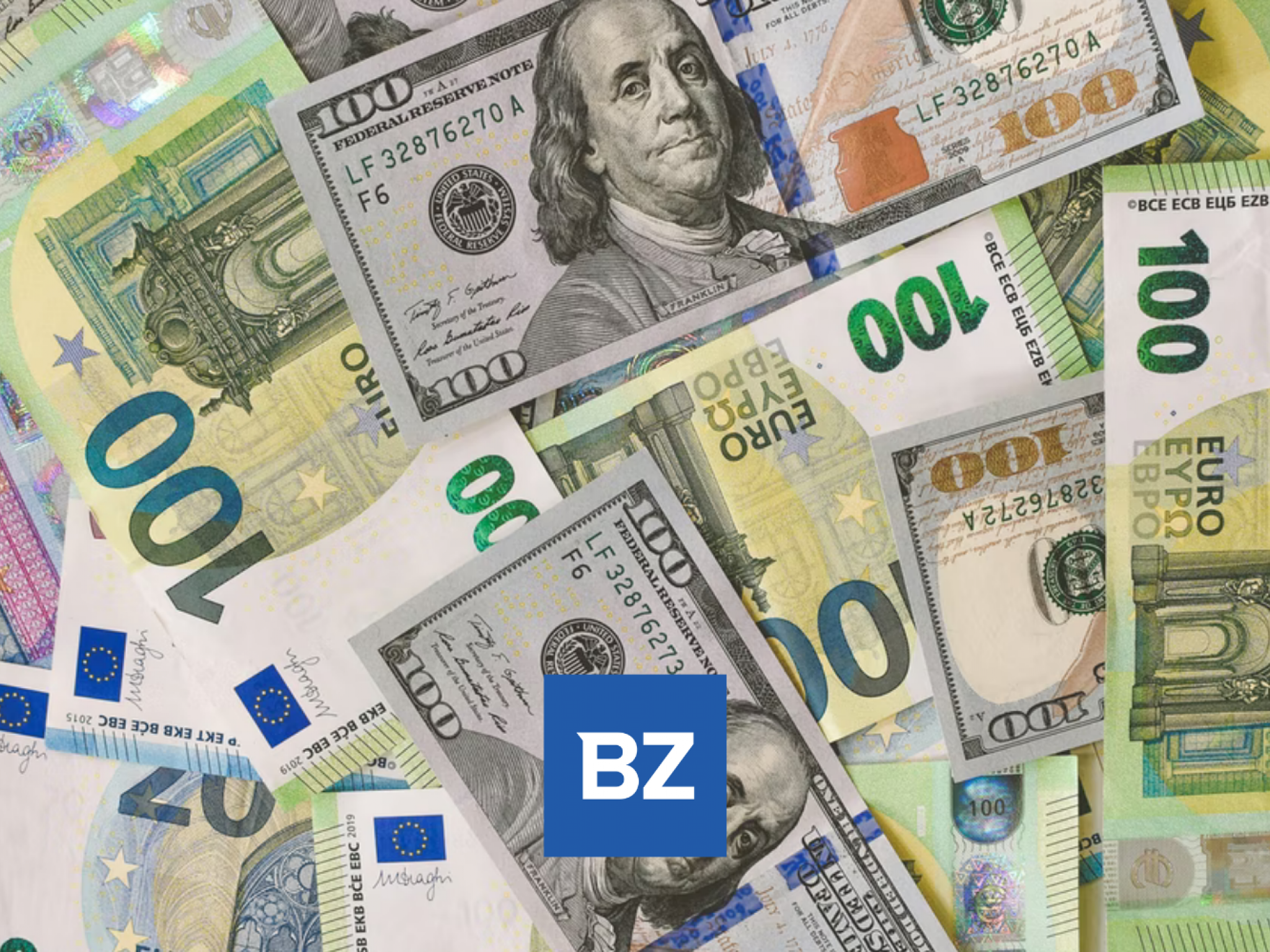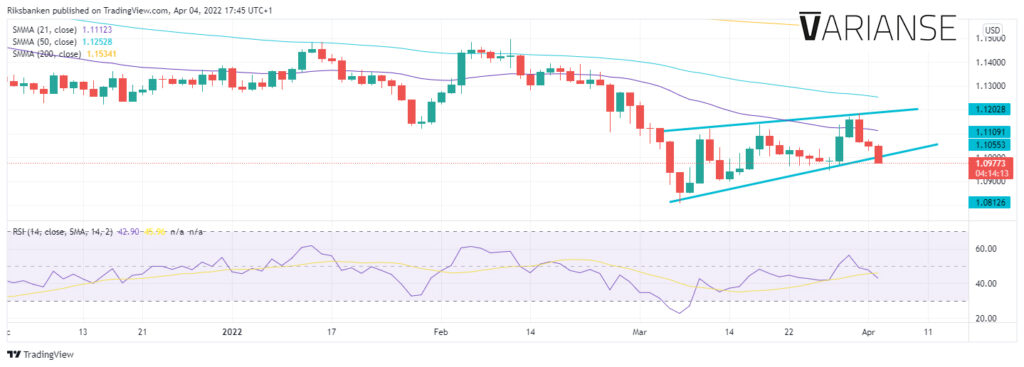
EUR/USD fell on Monday as fresh claims of Russian war crimes in the Ukraine led to increased speculation of more punitive sanctions against Russia. The news, combined with other developments over the weekend, dented hopes last week of a possible de-escalation in the war. Added downward pressure on the euro also came from firmer-than expected US factory order data for February on what was a light day in terms of economic data. ECB Governing Council member Vasle, who hinted the ECB could raise interest rates by the end of this year, lent little support to the euro in the current environment.

Geopolitical factors are unsurprisingly in the driver seat when it comes to EUR/USD for the moment. Still, a host of ECB and Fed speakers this week could easily tilt the scales for the euro as much as the Ukraine. Economic data could play an equally significant role as traders try to assess the impact of recent events on the euro area economy.
The final March services PMI for the euro area is due for release on Tuesday and is likely to get more attention than usual in a relatively quiet week for data. The preliminary PMI dropped to 54.80 from 55.0 in April. More importance, however, is likely to be placed on the release of the March Federal Reserve minutes on Wednesday which are expected to outline the central bank’s plans for balance sheet reduction.
A break above the 1.117 region in the coming days could lead to a more positive shift sentiment around the pair, but for the time being the risks for EUR/USD look increasingly tilted to the downside in terms of risk and reward.







